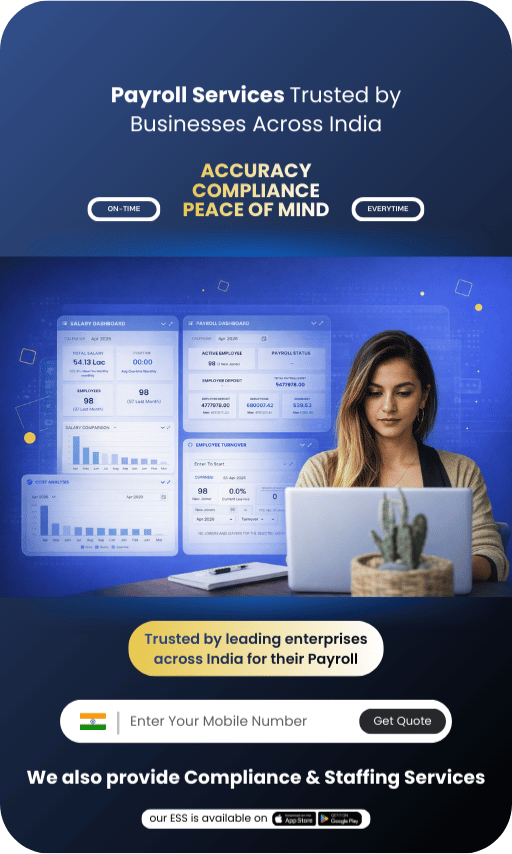In India, the financial year is from 1st of April to 31st of March every year. By the 31st of March, all the financial obligations like tax filing, returns, should be fulfilled. It is essential for those who are required to follow the mercantile system, to ascertain the transactions accrued up to 31st of March and to accurately record the same in the books of account. Employee payroll and abiding the legal compliance are even more critical in the fiscal year-end.
Here is a checklist of 15 essential activities that a businessperson must complete before 31st March.
1) Calculate Payable Tax: An assessment is responsible for calculating his estimated tax as accurately as possible. Also, tax liability should be calculated, and TDS should be deducted to arrive at the total advance tax payable, and the same should be paid before 31st March 2018.
2) Investments to save tax: Investments eligible for deductions should be made under chapter via. Deductions on account of payment of premium for health insurance u/s 80D, donations u/s 35AC or u/s 80G are allowed only if the investment has been made on or before 31st March.
3) Physical Inventory: It is vital to take a physical inventory of raw materials, work in progress, finished goods, stores & spares, free tools, consumables, etc. on 31st March.
4) Fixed Asset Purchase for Business: Fixed assets can be purchased to claim depreciation. Any fixed assets can be purchased on or before the 31st March and put to use for business purpose so that a deduction of depreciation, at least at the rate of 50 % of the normal rate of depreciation may be availed.
5) Claim additional depreciation and incentive: If engaged in a manufacturing business, assets may be purchased to claim additional depreciation on or before 31st March 2018. There are specific categories of assesses, that are eligible for a deduction of incentive @15% for the acquisition of new plant and machinery before 31st March.
6) Capital Gains: One may try to identify capital assets such as shares, mutual funds, debentures etc. on or before 31st March, to book a capital loss. This will help him to set off against the taxable capital gain and as a result, will nullify the capital gains tax.
7) Account for unabsorbed capital losses: If one has a possibility of having taxable capital gains for the current financial year, he should not postpone it for the next year, but book the gain on or before 31st March to offset the capital loss of previous years.
Read more : All you need to know about the Child Labour Act (Prohibition and Regulation Act, 1986)
8) Cleaning up of Loan Accounts: If one has taken any loans or given loans try to settle the account on or before 31st March. This helps in improving the balance sheet, which is prepared on 31st March. Temporary loans and hand loans can be given or taken on or after 1st April.
9) Manage professional incomes and expenses: In businesses that basically follow a cash system of accounting, expenses are allowed to be deducted only if they are actually paid on or before March 31st. Hence it is advisable to make payments on or before March 31st.
10) File your Income Tax Return: 31st March is the last date for filing pending Income Tax Returns. Keep your Tax returns always up to date. It is a sign of good business acumen.
Read more : why payroll compliance services are essential for your business?
11) Calculate the GST turnover: It is important for businesses to keep a track of their turnover, which is not yet under the GST registration limit of Rs 20 Lakh. This is important for application of GT registration, eligibility of opting competition scheme, and applicability of filing of specific returns.
12) Reconcile GST Ledgers: The taxpayers should always reconcile the cash ledger, credit ledger and liability ledger on GSTN portal with their books of accounts.
13) Manpower assessment: It is necessary to keep an eye on the manpower requirement, whether it needs downsizing or further addition.
14) Vendor’s List: As like manpower, it is necessary to keep a tab on the number of vendors required for the upcoming fiscal year.
15) Reviewing your expansion plans: Review your expansion plans if any, in the context of the present financial situation. This will help you to move forward with more confidence and knowledge.
Conclusion
It is always better to be ready with the checklist as the fiscal year nears its end. You may keep good accounting software to avoid useless stress. An intelligent businessperson will always be on his toes and avoid unnecessary hassles at the last minute.











